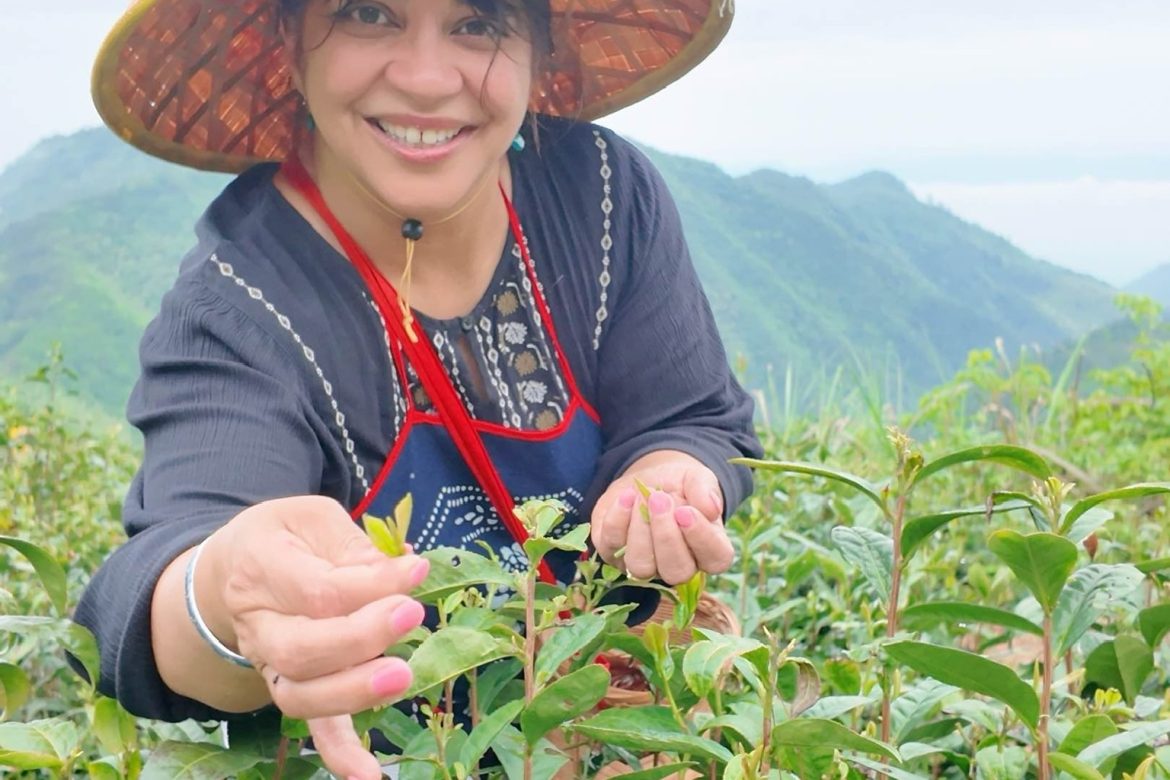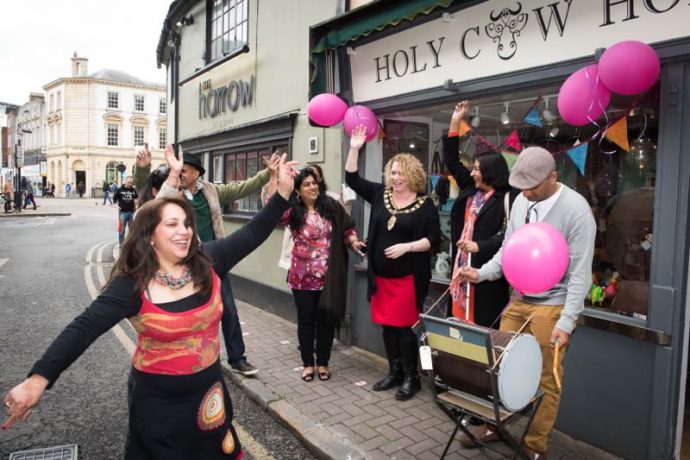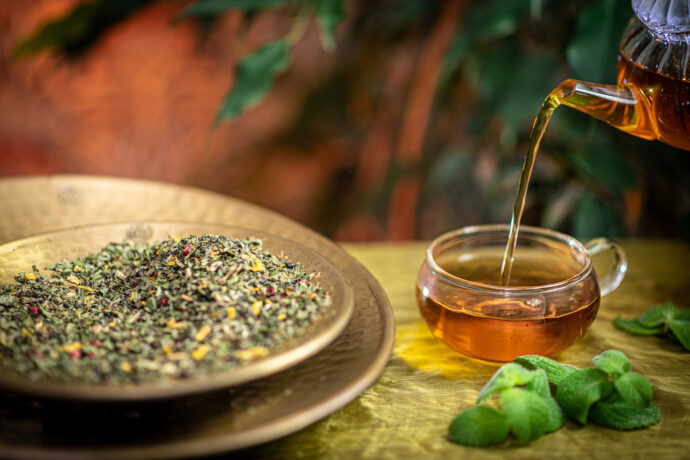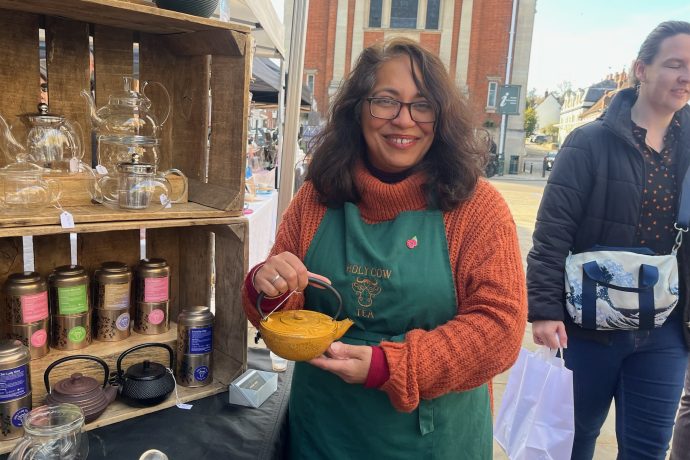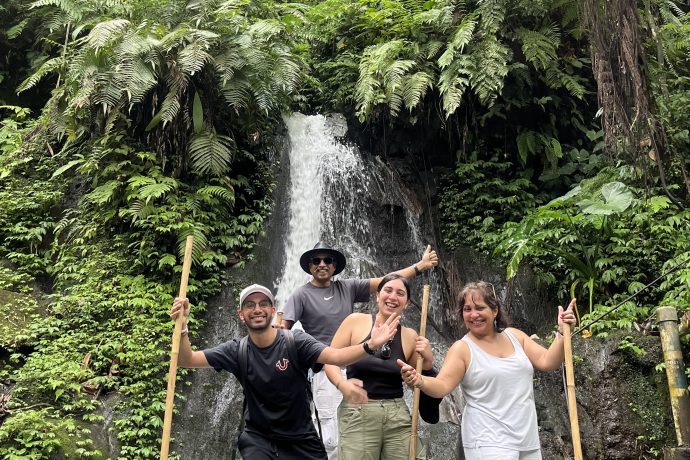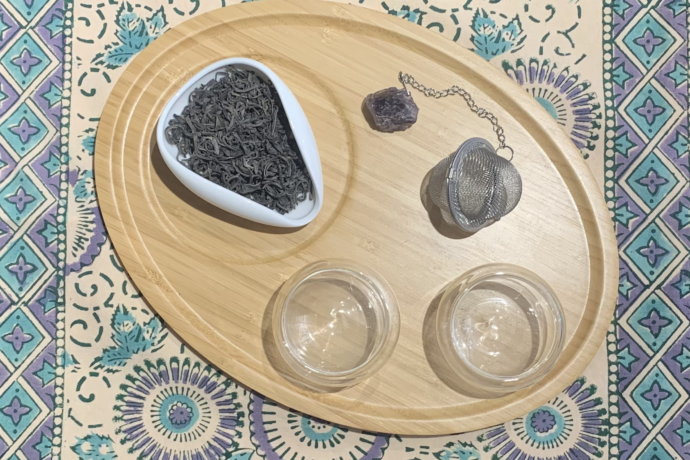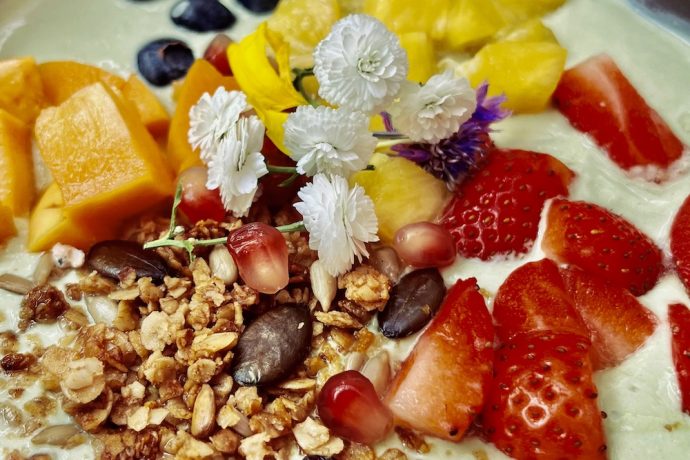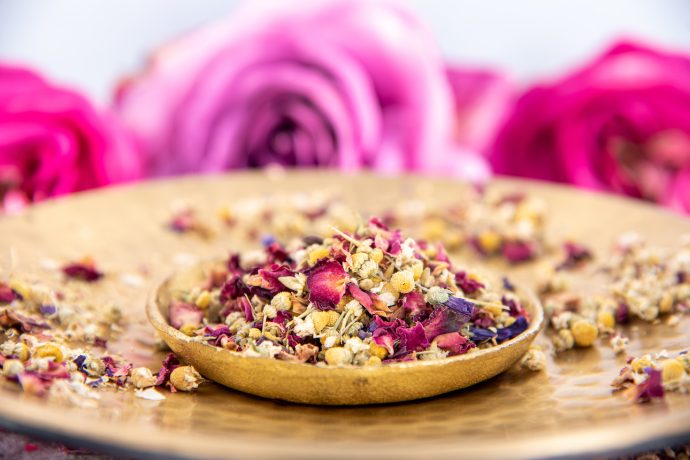The 21 May marks International Tea Day and this year’s theme is Women in Tea. It focuses on ‘honouring women around the world, from crop to cup’. As a woman, a tea sommelier and the founder of Holy Cow Tea, this theme is close to my heart.
Supporting Women in Tea
Anyone who knows me understands I am passionate about tea; the traditions and ceremonies, the processes and variations. I’m delighted that I’m a woman who has made a business out of this obsession with tea and I want to support other women in the tea industry.
I’ve been fortunate enough to visit many tea plantations across the globe. On my travels, I’ve seen and met women who play a vital role in picking, processing and serving tea. In many remote locations, a job picking on a tea plantation is the only available work for women. It’s great that there is an opportunity to earn, however, the pay and work conditions vary.
Women Tea Pickers
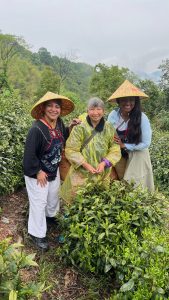 As a business owner, it has always been important for me to find ethical producers. I’m conscious that in many countries, the individuals who grow and harvest crops or use traditional skills to make items are often the poorest paid. I aim to support tea plantations where standards are fair and workers are not exploited.
As a business owner, it has always been important for me to find ethical producers. I’m conscious that in many countries, the individuals who grow and harvest crops or use traditional skills to make items are often the poorest paid. I aim to support tea plantations where standards are fair and workers are not exploited.
This is one reason why I like to visit in person. I see the setup with my own eyes. To avoid damaging the plant, tea leaves have to be hand-picked. Over half of the world’s tea pickers are women and they work long days in all weathers to ensure a continuous supply of this popular beverage. It is only right that they have food, sanitation, a safe place to sleep and a wage.
I also take an interest in initiatives that improve the life experiences of women in tea regions. It was fantastic to learn about the Pekoe Trail, a community-focused hike through 21 tea plantations and multiple Sri Lankan villages. The team have recently trained 30 women who will now operate as guides on this 300km route, sharing their local knowledge with walkers.
Another great example is a project led by UK charity, Orbis, who have provided sight tests, glasses and minor surgery to improve eye health and vision for tea pickers in Bangladesh.
Tea Ceremonies Led By Women
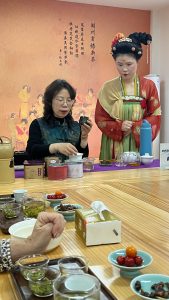
I’m just back from a trip to China and enjoyed attending a tea ceremony. Traditionally, women were banned from tea ceremonies in China and Japan. However, it is now more likely for women to be trained to deliver the rituals of preparing and serving tea.
It requires years of training to learn the etiquette and precise stages of a tea ceremony. The process brings people together in a calm and mindful way, where the full flavours and aromas of the tea are savoured. To be honest, it was hard for me to sit quietly and not ask all the questions that were brewing in my mind!
Tea Rooms in Britain
In the 1800s coffee houses and bars were not seen as suitable for women. They couldn’t even enter to purchase coffee to make at home. However, when tea rooms started to open at the end of the century, they provided a respectable and acceptable place for women to meet. Equally, running a tea room was an accepted profession for women and some opened their homes up to serve the local community.
This association with tea rooms and women made them the perfect assembly point for Suffragettes. They are said to have favourite tea rooms across the country, where they would promote and plan campaigns. So, to some degree, we have tea to thank for gaining women the vote!
UK Tea Sommeliers
 The first person to be certified as a tea sommelier in Britain was a lady called Jane Milton,
The first person to be certified as a tea sommelier in Britain was a lady called Jane Milton,
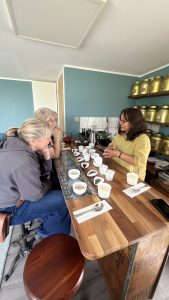 who studied in Sri Lanka. Now there are around 100 of us, who have studied the processes, flavours and heritage of teas from around the globe. I love sharing everything I’ve learnt in my tea experiences and talks, where others are keen to learn.
who studied in Sri Lanka. Now there are around 100 of us, who have studied the processes, flavours and heritage of teas from around the globe. I love sharing everything I’ve learnt in my tea experiences and talks, where others are keen to learn.
So, let’s keep celebrating this wonderful beverage and the part that women play in bringing it to our cup!

